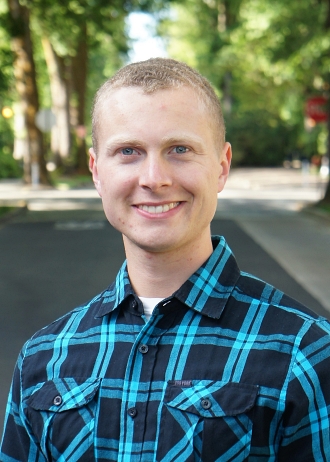Speaker
 Josiah J. Shaver
Josiah J. Shaver
Master's Candidate in Water Resources Policy & Management
Oregon State University
After growing up in a small, rural community near Portland, Oregon, Josiah earned a B.S. in Geology from Oregon State University (OSU) in 2019. He is now working on a Master’s in Water Resources Policy & Management and a graduate certificate in Water Conflict Management & Transformation, advised by Dr. Aaron Wolf at OSU, where he is the 2021-22 President of the Hydrophiles Club, a student branch of the American Water Resources Association (AWRA). In his free time, Josiah enjoys photography, outdoor adventures of all types, endurance sports, travelling, hanging out with family and friends, and cats. Josiah’s career objectives involve sustainable water management, beaver restoration, science communication, natural resources conflict management, and visionary, collaborative leadership.
Description
Beginning soon after European colonization in North America, beavers were systematically trapped out of entire regions. Beaver pelts fueled demand for the fashion of the times. Without beavers on the landscape, the ecogeomorphology shifted in dramatic ways. Unimpeded by beaver dams, swifter streams cut deep into the streambeds, channelizing streams in place. Essential habitat for fish, birds, insects and mammals was lost, having surprising ripple effects in the ecological web of life. Drier vegetation along streams influenced wildfire dynamics. Ultimately, ecologists have realized the multifaceted benefits that beavers bring, free of charge, triggering many beaver restoration efforts. However, beavers remain controversial because of the problems they sometimes cause with human infrastructure. In response, innovative individuals and groups have been sharing solutions to these problems. Beaver coexistence devices allow beavers to remain on shared landscapes, benefiting both local ecology and people.
Learning Objectives
- Explain the history of widespread beaver trapping in North America and the tremendous impacts of removing beaver from the landscape.
- Recognize the key relationships between beaver, hydrology, ecology, wildfire, etc.
- Identify common human-beaver conflicts and the appropriate coexistence solutions that can be implemented to solve the problem.
Webinar Recording & PDH Certificate
Included with your webinar registration is access to a recording of the program and a fillable certificate to self-report your Professional Development Hour (PDH)/Continuing Education Credit (CEU). Your certificate will be available to download and a link to the recording of this webinar will be sent within a week of the live program from [email protected]. The recording is exclusively for you, the registrant of the webinar. They are not to be shared or forwarded.